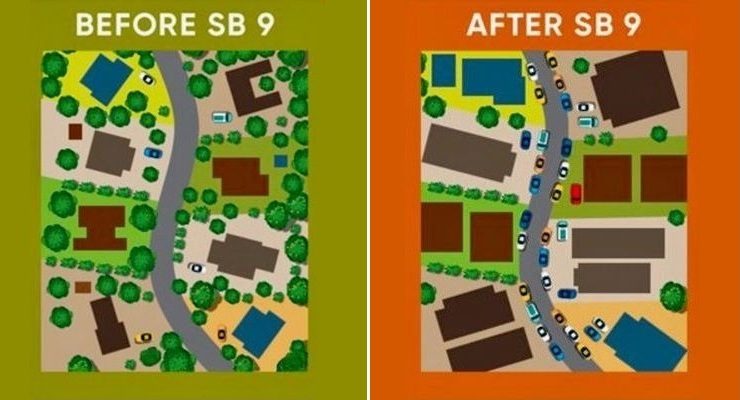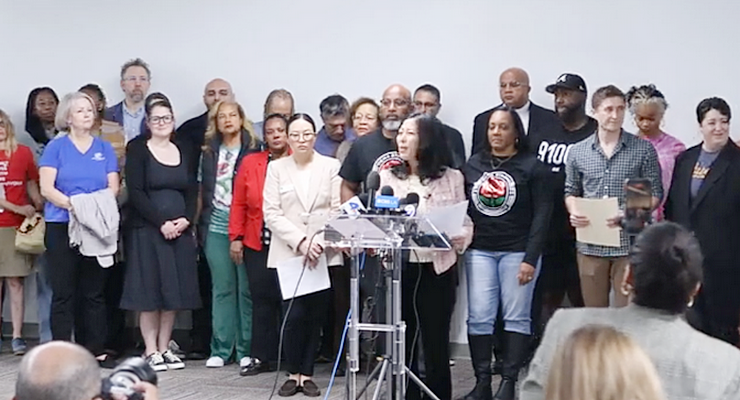
[UPDATED] Local residents responded to state Attorney General Rob Bonta’s letter to city officials decrying a recently-approved Pasadena ‘urgency’ ordinance in response to Senate Bill 9.
The ordinance passed in December prohibits the application of SB 9 to any parts of the city designated as a “landmark district.”
Bonta said the ordinance is illegal.
SB 9 mandates local agencies must approve certain subdivisions of one single-family residential lot into two without discretionary review and requires local agencies approve proposed two-unit development projects on lots in a single-family residential zone without discretionary review.
Critics of SB 9 claim the bill will lead to the destruction of single-family housing and that it will have a negative on impact Black and Brown communities.
But according to Bonta, SB 9 does not exempt landmark districts — it exempts only specific landmarks, historic properties, or historic districts.
The city currently has 23 designated landmark districts as well as 20 historic districts listed in the National Register of Historic Places.
Bonta also said Pasadena’s criteria for designating areas “landmark districts” are extremely broad and untethered to historic resources so as to potentially encompass large swaths of the City.
Bonta called on the city to repeal or amend its ordinance to comply with the new state law within 30 days.
“I am glad the State Attorney General is addressing this,” said local attorney Richard McDonald. “We all know there is a housing shortage, and that we have an obligation to the next generation to provide more housing. The state has passed laws to do that, and the courts have upheld those laws over a variety of local objections. We are a nation of laws. We may not like them, and we can oppose them; but, once we have them, we have to follow them or seek to change them. Evading or dodging them is not an option, and I support the Attorney General’s efforts to enforce the law.”
Bonta did not say what would happen if the city failed to repeal or amend its ordinance.
“The Attorney General’s opinion seems to be just that, a very narrow, strict interpretation of Senate Bill 9 based on nomenclature. Whether or not local landmark districts — like state and national register historic districts — are exempt in their entirety from the provisions of SB 9 as Bonta contends will most likely have to be tested in the courts,” said Julianna Delgado, president of the Southern California Planning Congress, who sits on the city’s Planning Commission.
According to Delgado, since Pasadena adopted its first local landmark district — what the City calls its local historic districts — starting in the late 1980s, criteria for designation has been generally in keeping with those established by the US Dept. of Interior for the National Register of Historic Places.
“The difference is that landmark districts may solely be significant to the city’s history, not the state’s or nation’s,” Delgado said. “As applied per Chapter 17 of the City’s Municipal Code, within Pasadena’s landmark districts, properties may be differentiated as contributors [those that support the significance of a district with respect to Pasadena’s history] and non-contributors [those that do not contribute to district significance]. The AG contends that contributors to local landmark districts may be exempt from SB 9 on an individual basis but not the district in its entirety. Thus, like with all new laws, broader interpretation will need to be adjudicated.”
More than 200 California cities have opposed SB 9.
Supporters of SB 9 say it will help solve the state’s growing housing crisis.
On Tuesday, Mayor Victor Gordo said the city received the letter regarding the city’s implementation of SB9 without any prior conversation regarding the substance of its regulations and how they comply with the law.
“The City of Pasadena’s efforts regarding housing policy and production have been progressive and responsive to the housing crisis and we remain committed to doing our part to help address the state’s housing issues. The Attorney General’s letter recognized Pasadena’s good faith effort to always comply with the letter and the intent of SB 9.”
“Our interpretation of SB 9 appears to differ from that of the Attorney General’s regarding historic and landmark districts. We will review the Attorney General’s letter and the statute further and promptly provide a written response.”
The Madison Heights Neighborhood Association also took Bonta to task when reached by Pasadena Now.
“The Attorney General’s letter suggests he is unaware of how Pasadena designates landmark districts,” said Glenn Camhi, Secretary of the Madison Heights Neighborhood Association. “He incorrectly suggests it’s an arbitrary process, but in fact the City uses an extremely rigorous, time proven, evidence-based methodology for identifying areas of historically significant architecture worthy of landmark district status. Having worked on getting a landmark district designated for the past several years, we can attest to that rigor. The Attorney General’s letter does not seem to make sense, and will surely be responded to with clarification.”


















